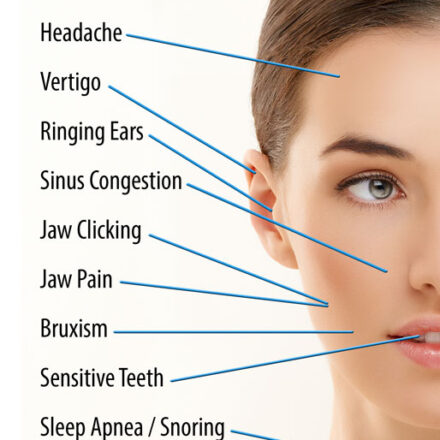Temporomandibular Joint (TMJ) Treatment
Temporomandibular joint (TMJ) disorders affect the jaw joint and surrounding muscles, causing pain, discomfort, or dysfunction in the jaw’s movement. These disorders may result from various factors, including injury, arthritis, stress, or habits like teeth grinding (bruxism). Symptoms commonly include jaw pain, difficulty chewing, limited jaw movement, clicking or popping sounds, and headaches.

Treatment Options:
Treatment Options: Treatment for TMJ disorders often begins with conservative, non-invasive approaches, such as:
1. Lifestyle changes: Stress management, avoiding hard foods, and practicing good posture.
2. Physical therapy: Jaw exercises to improve strength and mobility.
3. Medications: Pain relievers, muscle relaxants, or anti-inflammatory drugs.
4. Oral appliances: Nightguards or splints to reduce teeth grinding and alleviate pressure on the joint.
In severe cases, interventions like corticosteroid injections, Botox for muscle relaxation, or surgery (e.g., arthroscopy or joint replacement) may be considered. Early diagnosis and personalized care typically result in better outcomes.
